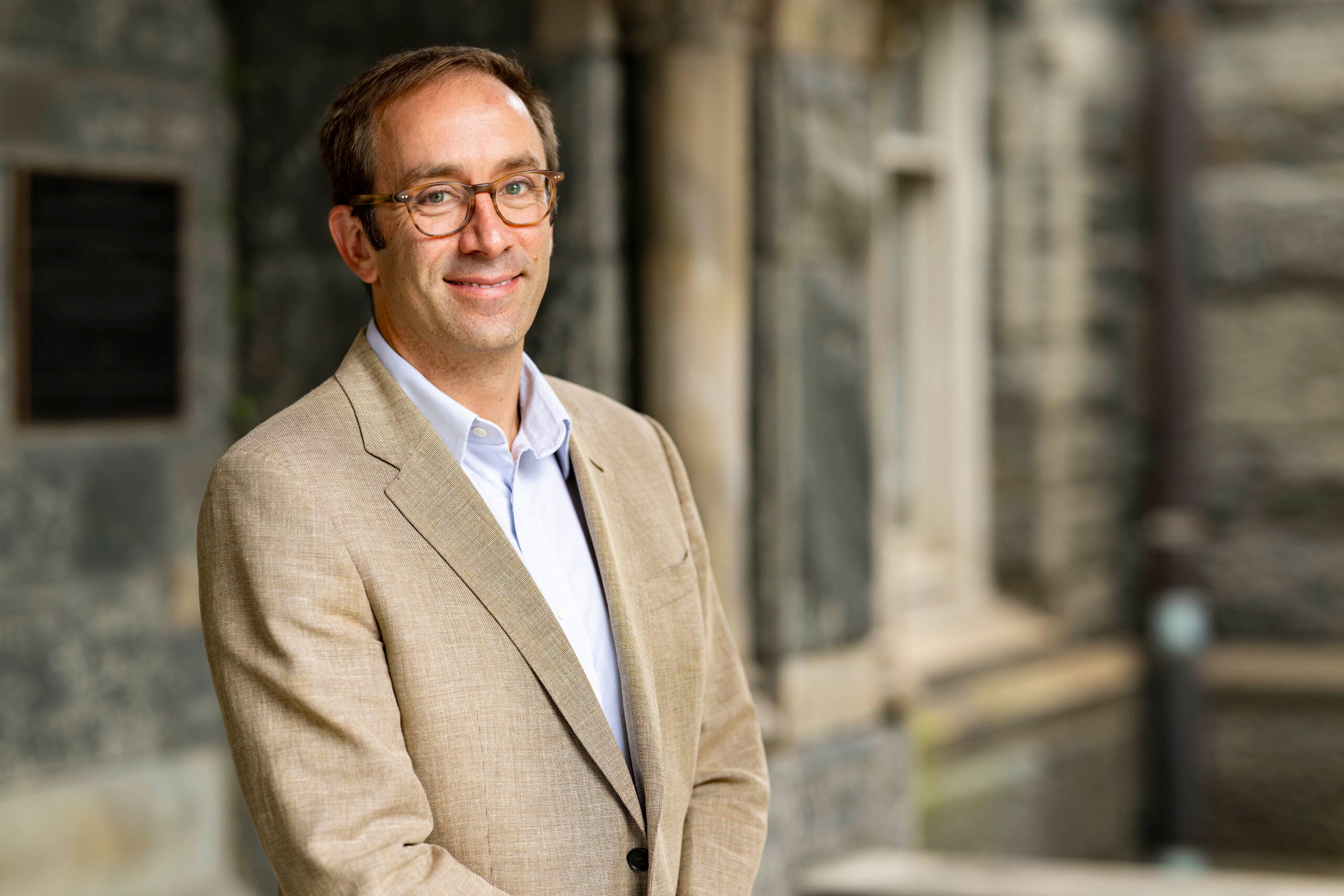Georgetown awards $100k to McCourt School associate professor addressing global learning crisis
Georgetown University’s Magis Prize recognizes associate professors who are making an extraordinary impact in their field with $100K in research funding.
Andrew Zeitlin, associate professor at Georgetown University’s McCourt School of Public Policy, was awarded Georgetown University’s Magis Prize —an award that recognizes tenured professors at the beginning of their careers who are making notable strides in their field. The $100,000 award invests in the scholars’ research with funding, as well as two semesters of research leave to accelerate their work. Zeitlin is one of three recipients this year, along with Ian Lyons, associate professor in College of Arts & Sciences and Blythe Shepard, associate professor in the School of Health.
Zeitlin uses field and lab experimental methods to study how individual decision-making shapes state effectiveness, through the design of transfer programs, incentives in public-service provision and tax policy and administration. He holds a B.A. in ethics, politics and economics from Yale University, an MPhil and a Ph.D. in economics from the University of Oxford.
Professor Zeitlin is also a non-resident fellow at the Center for Global Development, an affiliated professor at The Abdul Latif Jameel Poverty Lab and a research associate at the Centre for the Study of African Economies at Oxford University.

McCourt School of Public Policy associate professor Andrew Zeitlin.
Tackling the root of the global learning crisis
Associate Professor Andrew Zeitlin’s award-winning research offers a novel approach to improve teacher recruitment, retention and learning in Rwanda to address what he highlights as a learning crisis in the developing world, particularly in many parts of Sub-Saharan Africa. Through his study, Zeitlin found that 20% of primary school teachers in Rwanda were leaving their jobs annually. Their departures made it difficult for schools to recruit and retain effective teachers, and forced many to assign teachers to topics they weren’t trained in.
To address this problem, Zeitlin and his team partnered with Rwanda’s Ministry of Education, its Education Board, and academic partners to develop and test a contract that links teachers’ pay to their performance, known as The Supporting Teacher Achievement in Rwandan Schools program. The contract rewarded the top 20% of participating Rwandan teachers with a bonus.
“These mechanisms induce an extra year of student learning for every year spent in the classroom, effectively doubling the rate of learning growth in primary schools,” Zeitlin wrote in his proposal.
At the same time, Zeitlin collaborated with the Rwandan government to deploy a centralized system that accounts for teacher preferences and district needs when matching teachers with schools, replacing the previous randomized approach.
“Leveraging the administrative data infrastructure that we have built, this will be the first randomized trial to evaluate the labor-market-wide impacts of alternative teacher matching systems,” he highlights.
Zeitlin’s interest in this research stemmed from how incentives and motivations shape people’s work, especially amid education workforce challenges in Rwanda.
“Being in school is not the same as learning, as Lant Pritchett has famously said,” Zeitlin reflects. “Even as enrollment has risen, literacy rates in Sub-Saharan Africa have in some places declined. We saw an opportunity to think differently about how teacher contracts might help change that.”
With the Magis Prize, Zeitlin plans to expand upon this work. The prize will help provide resources to implement the teacher contracts across Rwanda, support Zeitlin’s team as they help roll out a comprehensive assessment to measure learning outcomes for all students in Rwanda’s basic education system, and enable a new trial to evaluate improvements in the teacher assignment system.
Making an impact around the world and at Georgetown
“The Magis Prize enables us not only to carry out this line of research, but also to think about how we can invest in the data systems and the human systems, both amongst our government partners in our non-governmental research partners in Rwanda, our academic collaborators elsewhere and here at Georgetown, where students are contributing to these types of projects. At gui2de, we’re building a platform for a new generation of experiments,” he says.
To date, 23 Georgetown students have contributed to this project, many through summer internships in Rwanda. Many of these students have gone on to work for global organizations like the World Bank, and in some cases have gone on to pursue Ph.D.s of their own, each building on skills and experiences gained through the project.
“We’ve got fantastic managerial and analytical support being done by great current students and recent graduates coming out of McCourt’s Master’s in Data Science for Public Policy and our Master’s in International Development Policy as well,” says Zeitlin.
Through his scholarship, Zeitlin is advancing solutions to one of the world’s most urgent challenges, while training Georgetown students to become the next generation of scholars and policymakers.